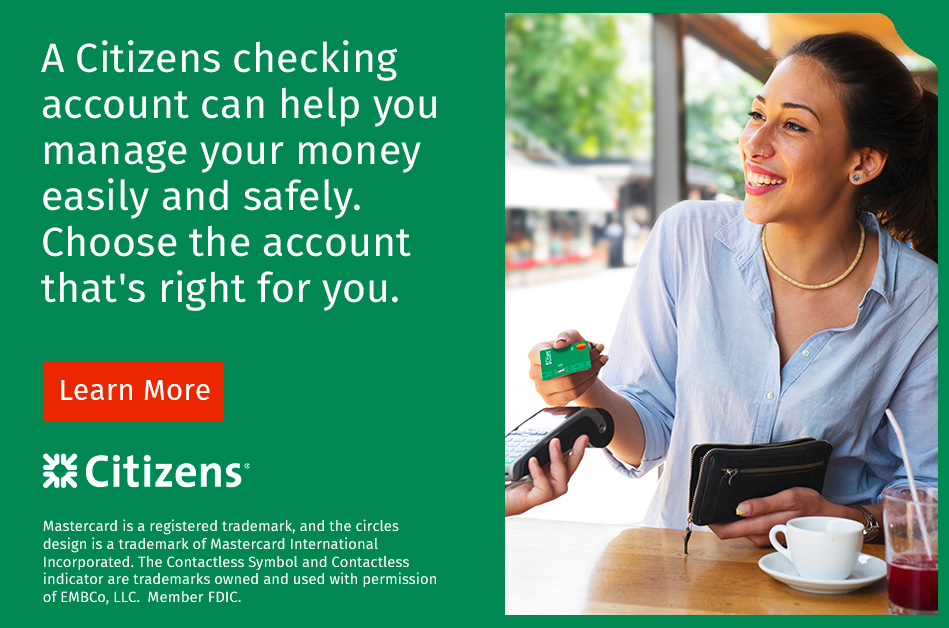What is a debit card, and how is it different from a credit card?

Key takeaways
- Debit cards make it easy to complete purchases without using cash, writing checks or charging to credit.
- Paying with a debit card won't lead to interest charges because it draws money from your checking account.
- Safeguarding your debit card number and PIN is just as important as protecting your credit card information.
A debit card looks and acts like a credit card, but it's powered by your checking account. With a tap, you can make a purchase or complete bank account transactions at an ATM, and you can even use them for online orders. They're a convenient way to spend money from your checking account without toting around your checkbook.
Read on to learn more about what debit cards can do, how they differ from credit cards, and their advantages and disadvantages.
What is a debit card, and why should you use one?
A debit card is a payment card issued by your financial institution in conjunction with a checking account. While it looks like a credit card and may bear a major credit card company logo such as Visa® or Mastercard®, a debit card actually works like a check.
When you use a debit card to pay for items in person or online, you're spending money directly from your checking account. This means your purchasing power is generally limited to your available account balance. It's an important distinction from credit cards, where you can spend on a line of credit that you'll pay back later, possibly including interest charges. These transactions don't involve interest because they move money out of your bank account almost instantly.
In addition to using debit cards for payments, you can also use them at ATMs to withdraw, deposit and transfer money as well as check your balance.
How do you use a debit card?
When you open a checking account, you'll typically be issued a debit card — either immediately at the bank branch or shortly after via mail. Your debit card number isn't the same as your checking account number. Instead, it's a 16-digit code like credit cards have that makes electronic and digital transactions possible.
Like credit cards, you can tap or swipe your debit card at points of sale or enter the number to make online purchases. You may also be able to add your debit card to a digital wallet* and then use your smartphone to make contactless payments. Usually, you can use a debit card anywhere you can use a credit card, though some retailers and services only accept cards affiliated with certain major credit card companies, such as Visa or Mastercard.
When you get your debit card, you'll be assigned or asked to select a PIN, or personal identification number, for it. This is a security measure that's like having a password for your card. You'll use your PIN for verification at ATMs and may need to enter it when you use the card as payment. You should keep your PIN private and shield the keypad when you enter it so that others can't learn it.
Tip: Setting up debit cards for teens can help them master financial responsibility.
When to use a debit vs. credit card
If you're trying to decide when to use a debit vs. a credit card, consider each card's features that may make one a better fit than the other in certain financial situations.
When to use a debit card
A debit card might be a better choice if:
- You have enough money in your account. Using your debit card avoids interest charges and possible effects on your credit score.
- You're going to withdraw cash. Credit cards generally charge hefty cash advance fees.
- You want to use cash but don't want to carry it. Paying with your debit card is just as easy as using cash, as long as you track your balance and avoid unnecessary fees.
- You don't qualify for a credit card yet. If you qualify for a checking account, you qualify for a debit card.
When to use a credit card
A credit card might be a better choice if:
- You want pay-over-time financing. A credit card can let you break down larger purchases into affordable monthly payments.
- You're stacking up on credit card perks. It can be worth using your credit card to get the points, miles or cash back and then pay off the balance before you're charged interest.
- An unexpected expense comes along. If your emergency savings come up short and you don't want to pull a large amount out of your checking account, a credit card can bridge the financial gap.
Pros and cons of debit cards
Advantages
- Convenience. You can tap to pay with your card or digital wallet.
- Versatility. It's a banking card and a payment card in one, and generally doesn't cost extra to use.
- Security. PINs and payment technology, like tap to pay, keep your transactions and checking account secure.
Drawbacks
- Tracking your debits. Quick transactions can be easy to forget when balancing your checking account.
- Out-of-network ATMs. ATM fees can add up, especially if both the ATM owner and your bank charge you.
Potential debit card fees
Debit cards conveniently pack the power of your checking account into a portable plastic rectangle but using them sometimes comes with costs in addition to maintenance fees. Some fees that you might run into with a debit card are an ATM fee, overdraft fee, insufficient funds fee, replacement card fees or foreign transaction fees.
Unlike credit cards, debit cards typically don't require you to pay annual fees on the card itself. Your checking account may have one, but many banks offer ways to waive these fees.
Using debit cards with ease
Debit cards are multifunctional money tools that offer convenience without the hassle of cash and checks or the interest charges of credit cards. From a contactless payment for your morning coffee to taking care of recurring charges for your household bills, these cards can add a layer of ease to your liquid-cash finances.
Ready to pay your way? With a Citizens checking account, you can get a debit card with fast and secure purchasing capabilities and mobile banking features that include the ability to change your PIN or freeze a card's activity. Find out more about Citizens debit cards online or visit a branch.
Related topics

When to use credit cards vs. debit cards
A debit card is an excellent way to make everyday purchases, while credit cards are a great option for larger purchases.

How to choose a checking account
Think about what you want in a checking account, including the level of convenience, the associated fees and monthly balance.

4 bank fees explained and how to avoid them
It’s important to know the most common bank fees associated with each type of account and how to avoid these unnecessary expenses.
© Citizens Financial Group, Inc. All rights reserved. Citizens Bank, N.A. Member FDIC
Disclaimer: The information contained herein is for informational purposes only as a service to the public and is not legal advice or a substitute for legal counsel. You should do your own research and/or contact your own legal or tax advisor for assistance with questions you may have on the information contained herein.
* Wireless carrier, text, and/or data charges may apply.
Mastercard is a registered trademark, and the circles design is a trademark of Mastercard International Incorporated.
Visa is a registered trademark of Visa International Service Association.
The Contactless Symbol and Contactless Indicator are trademarks owned by and used with permission of EMVCo, LLC

